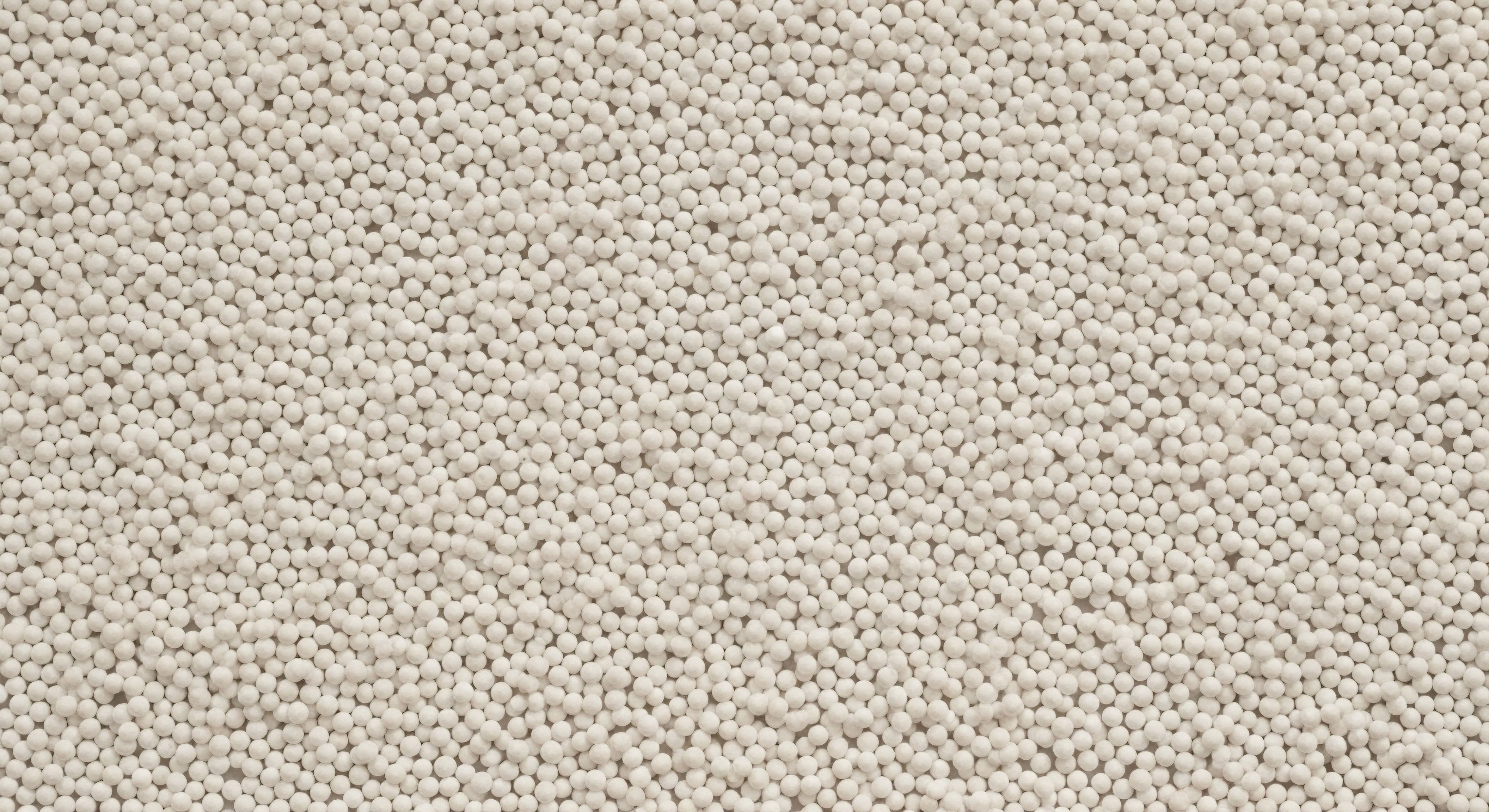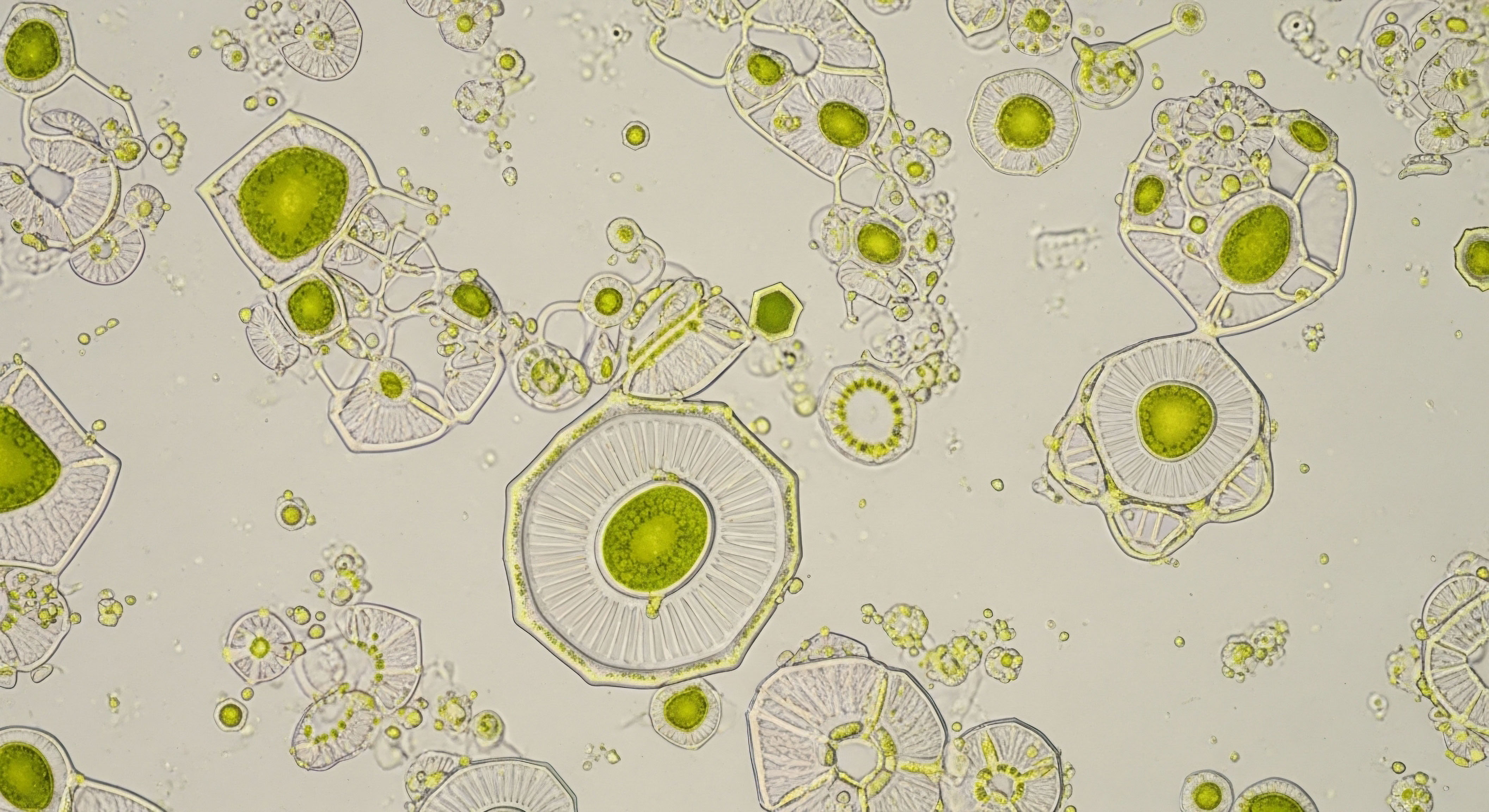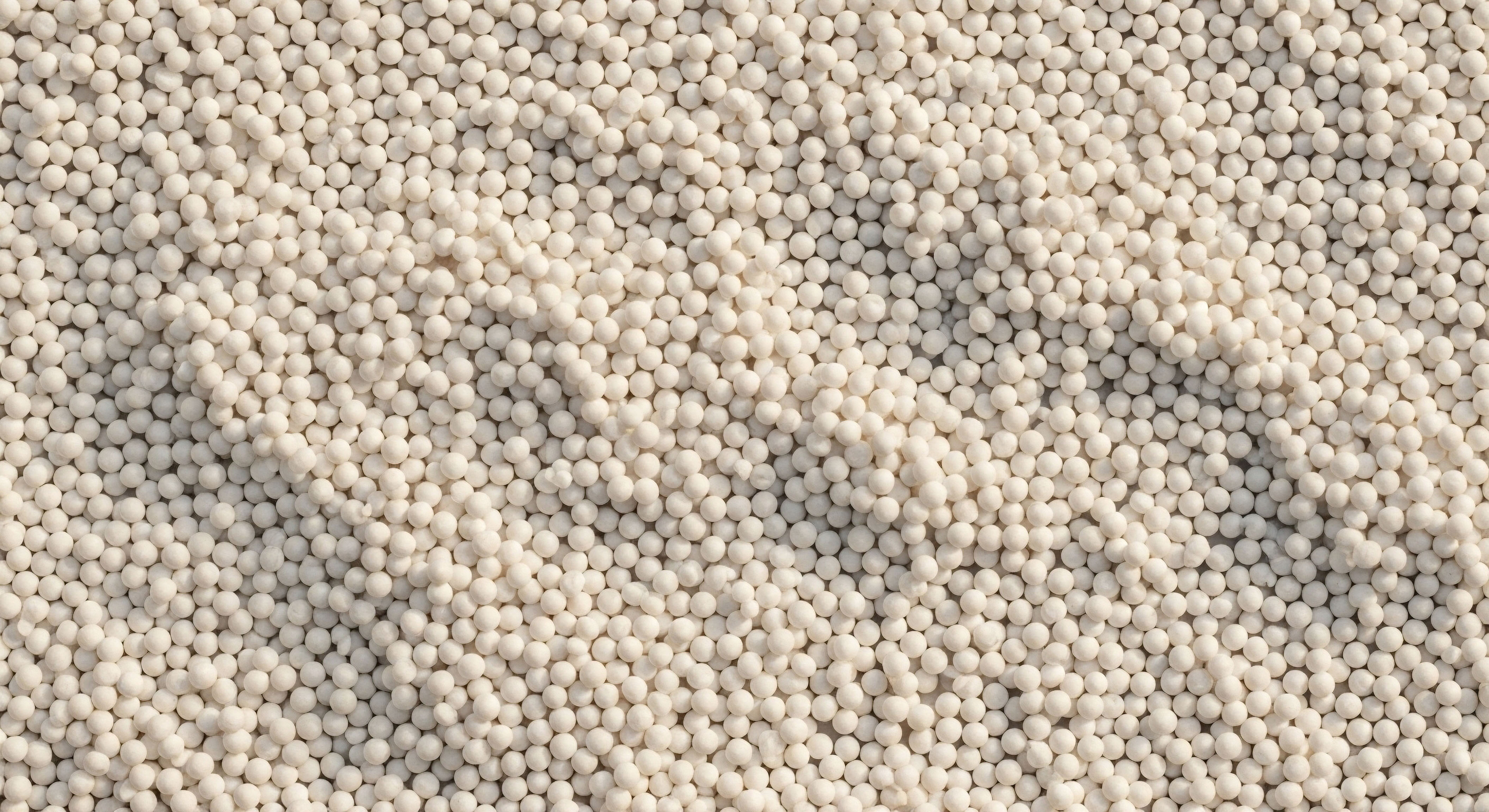

The Biological Blueprint for Peak Human Output
The human body is an extraordinary system, a marvel of biological engineering designed for adaptation, resilience, and peak performance. At its core, this system operates through intricate communication networks, a symphony of signals that orchestrate everything from cellular repair to cognitive acuity. Peptides, short chains of amino acids, are the master communicators within this system.
They are not mere supplements; they are fundamental biological messengers, each carrying precise instructions that can profoundly influence physiological processes. Understanding their role is paramount to unlocking superior human performance, extending vitality, and fortifying the architecture of our well-being. These signaling molecules are the linchpins that connect our genetic potential to our observable capabilities, dictating how efficiently we build muscle, how rapidly we recover, how sharply we think, and how effectively we age.
For decades, the focus on human performance has often centered on macronutrients, exercise physiology, and general hormonal balance. While critical, this perspective frequently overlooks the granular, cellular-level signaling that dictates the ultimate expression of our physical and mental potential. Peptides provide this missing layer of understanding.
They act as direct commands to cells, initiating cascades of beneficial responses that enhance muscle protein synthesis, reduce inflammation, improve metabolic efficiency, and even support neural function. By engaging with specific peptide pathways, we can directly influence the body’s innate capacity for repair, growth, and sustained energy production, moving beyond mere maintenance to active optimization.

Unlocking Innate Potential
The concept of “superior human performance” is not an abstract ideal; it is a tangible outcome of a body functioning at its biological zenith. This zenith is characterized by robust muscle mass, efficient energy utilization, sharp cognitive function, and a resilient immune system. Peptides are instrumental in achieving and sustaining these states.
They are the biological architects that guide cellular construction and repair, ensuring that tissues are rebuilt stronger, energy stores are accessed more readily, and the inflammatory responses that hinder recovery are precisely managed. Their signaling power allows for targeted interventions that amplify the body’s natural capabilities, leading to advancements in strength, endurance, and cognitive clarity that traditional methods alone may not achieve.

The Foundation of Vitality
Vitality is the observable manifestation of a body operating in optimal hormonal and cellular equilibrium. Peptides are intrinsically linked to this equilibrium. They can influence the release of key hormones like Growth Hormone (GH) and Insulin-like Growth Factor 1 (IGF-1), which are fundamental to muscle growth, fat metabolism, and cellular regeneration.
Furthermore, specific peptides directly support metabolic health by modulating appetite and glucose regulation, aligning with the body’s inherent drive for efficient energy management. This precise signaling capacity makes peptides invaluable tools for anyone seeking to enhance their physical output, accelerate recovery, and cultivate a sustained state of high-level function. They are the precise tools that recalibrate biological systems for superior output.
The precise signaling capacity of peptides allows for targeted interventions that amplify the body’s innate capabilities for repair, growth, and sustained energy production.


The Cellular Symphony of Performance Amplification
The “how” of peptide signaling for superior human performance lies in their direct and specific interaction with cellular receptors and signaling pathways. Unlike broad-acting hormones, many peptides act as highly specific keys, unlocking particular cellular functions. This precision allows for targeted enhancements in areas critical for peak physical and cognitive output. They are the sophisticated messengers that orchestrate complex biological processes with remarkable efficiency, driving anabolic processes, modulating inflammatory responses, and optimizing energy metabolism.
At a fundamental level, peptides are short chains of amino acids, the very building blocks of proteins. However, their smaller size and specific sequences grant them unique bioactivity. When introduced or signaled internally, they bind to cellular receptors, initiating a cascade of intracellular events.
This can lead to the upregulation of muscle protein synthesis, the downregulation of protein degradation, and the modulation of inflammatory cytokines like TNF-alpha and Interleukin-6. This intricate dance of molecular signals is what underpins the tangible benefits observed in athletic performance, recovery, and overall vitality.

Key Peptide Pathways for Optimization
Several classes of peptides have demonstrated significant potential in enhancing human performance and well-being. Their mechanisms of action target distinct physiological processes, offering a comprehensive approach to biological optimization.
- Growth Hormone Secretagogues (GHS): Peptides like CJC-1295 and Ipamorelin are designed to stimulate the pituitary gland to release Growth Hormone (GH) and IGF-1. GH and IGF-1 are crucial for muscle hypertrophy (growth), lipolysis (fat breakdown), tissue repair, and cellular regeneration. By signaling for increased GH release, these peptides directly support increased muscle mass, reduced body fat, and accelerated recovery from strenuous activity.
- Tissue Repair and Regeneration Peptides: Compounds such as BPC-157 (Body Protection Compound 157) and TB-500 are renowned for their potent regenerative properties. They promote healing by increasing blood flow to damaged tissues, enhancing the delivery of essential nutrients and oxygen, and modulating inflammatory responses that can impede recovery. This accelerated healing translates to reduced downtime, faster return to training, and improved resilience against injury.
- Metabolic Regulators: Peptides like GLP-1 (Glucagon-Like Peptide-1) analogs, such as semaglutide, play a critical role in metabolic health. They influence appetite, taste perception, and glucose homeostasis, supporting body composition goals and efficient energy utilization.
- Collagen Peptides: Derived from collagen, these peptides provide specific amino acids like hydroxyproline-glycine, which can activate signaling pathways that enhance collagen synthesis and musculoskeletal health. This supports joint integrity, connective tissue strength, and can contribute to improved physical resilience.

The Precision of Cellular Command
The advantage of peptide therapy lies in its targeted action. Instead of broad hormonal shifts that can have systemic side effects, specific peptides deliver precise instructions to designated cellular machinery. For instance, AI-driven research is uncovering novel plant-based peptides that can selectively upregulate muscle protein synthesis while simultaneously downregulating muscle degradation pathways. This level of biological precision allows for optimization that respects the body’s inherent design, amplifying its performance potential with remarkable specificity.
Specific peptides can selectively upregulate muscle protein synthesis while simultaneously downregulating muscle degradation pathways, offering precise biological control for performance enhancement.
Consider the mechanism of muscle growth. It requires a delicate balance between anabolic signals that build tissue and catabolic signals that break it down. Peptides can directly influence this balance. For example, Growth Hormone Releasing Peptides (GHRPs) trigger the pituitary to release GH, which then signals the liver to produce IGF-1.
IGF-1 binds to receptors on muscle cells, activating pathways like the mTOR pathway, which is a master regulator of protein synthesis. Simultaneously, other peptides can help reduce inflammation and oxidative stress, which are byproducts of intense exercise that can hinder recovery and growth. This multi-pronged approach, orchestrated by specific peptide signals, ensures that the body is not only stimulated to grow but is also provided with the optimal environment for that growth to occur efficiently and effectively.


Strategic Integration for Sustained Excellence
The strategic application of peptide signaling for superior human performance is not a one-size-fits-all endeavor. It demands a nuanced understanding of individual biology, specific performance goals, and the precise timing of interventions. The optimal use of peptides is a function of careful planning, personalized protocols, and integration within a comprehensive performance framework that includes nutrition, training, and recovery. It is about leveraging these powerful biological tools at the most opportune moments to achieve targeted outcomes.
The “when” encompasses not only the timing of peptide administration relative to training or recovery but also the consideration of individual biological states. Factors such as age, training volume, injury status, and underlying health conditions all play a role in determining the most effective peptide selection and protocol. The goal is to complement, not override, the body’s natural rhythms, ensuring that interventions are supportive and sustainable for long-term high performance.

Personalized Protocols for Peak Output
The efficacy of peptide therapy is significantly amplified when tailored to the individual. A professional assessment is crucial to identify specific physiological needs and performance bottlenecks. This might involve analyzing hormonal profiles, metabolic markers, and recovery metrics. Based on this data, a clinician can design a personalized protocol that selects the most appropriate peptides and determines optimal dosages and administration schedules.
- Accelerated Recovery: For athletes engaged in high-intensity training, the immediate post-exercise window is critical. Peptides that enhance tissue repair, such as BPC-157 or TB-500, can be administered to expedite the healing process, reduce muscle soreness, and prepare the body for subsequent training sessions more rapidly.
- Muscle Growth and Strength: To maximize muscle hypertrophy, a sustained elevation of anabolic signaling is beneficial. Growth Hormone Secretagogues like CJC-1295 and Ipamorelin can be used in cycles to stimulate consistent GH release, supporting lean muscle mass development and strength gains over time.
- Endurance and Energy: For endurance athletes, optimizing energy production and oxygen utilization is key. While research is ongoing, some peptides show promise in boosting ATP production or improving cardiovascular function, enabling longer, more intense efforts.
- Cognitive Enhancement: While direct peptide use for cognitive function in healthy athletes is less established than for physical performance, hormonal optimization (which peptides can influence) is known to support cognitive clarity and focus.

The Art of Integration
Peptides are most powerful when integrated into a holistic performance strategy. This means understanding their synergy with other modalities. For example, the anabolic signaling stimulated by GHRPs is most effective when paired with adequate protein intake and resistance training that provides the necessary stimulus for muscle growth.
Similarly, metabolic peptides that support fat loss are more impactful when combined with a well-structured nutritional plan and consistent physical activity. The timing of administration also matters; some peptides are best used post-exercise, while others may be more effective when administered during periods of deep sleep to capitalize on natural GH release cycles.
It is imperative that the use of peptides is guided by qualified medical professionals. They possess the expertise to navigate the scientific literature, assess individual needs, prescribe appropriate compounds, and monitor for efficacy and safety. This ensures that peptide therapy is not just an experimental pursuit but a scientifically grounded strategy for achieving and sustaining peak human performance.
The journey to superior performance is a long-term commitment, and peptides, when applied intelligently, become powerful allies in that pursuit, helping to build a more resilient, capable, and vital self.

Mastering Your Biological Architecture
The signals that govern our biology are not immutable laws; they are dynamic instructions that can be understood, influenced, and optimized. Peptides represent a frontier in this understanding, offering precise, targeted mechanisms to enhance the very essence of human performance ∞ from the cellular engine room to the executive functions of the brain.
To embrace peptide signaling is to engage with the sophisticated engineering of your own physiology, to move beyond passive acceptance of biological limitations and actively sculpt a future of unparalleled vitality and capability. This is not about artificial enhancement; it is about intelligent biological attunement, unlocking the latent potential encoded within your own system to perform, recover, and thrive at levels previously unimagined.
The future of human performance is written in the language of peptides, and mastering this language is the key to architecting your ultimate self.

Glossary

superior human performance

human performance

hormonal balance

muscle protein synthesis

cognitive function

superior human

growth hormone

muscle growth

peptide signaling

athletic performance

protein synthesis

growth hormone secretagogues

tissue repair

synthesis while simultaneously downregulating muscle degradation

selectively upregulate muscle protein

peptide therapy




